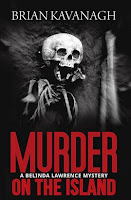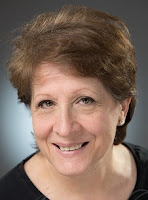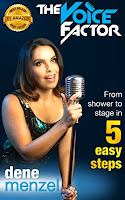To begin, can you tell us a bit about you as an author?
 Since I was 12 I have wanted to write my own stories but that’s all it was really, a dream in the back of my mind. It was only last year though when I was introduced to the world of ebooks and Indi authors that I finally felt like I had the opportunity to take that first step. I was so excited to finally put this series of characters onto paper and hope people like them as much as I enjoyed writing them.
Since I was 12 I have wanted to write my own stories but that’s all it was really, a dream in the back of my mind. It was only last year though when I was introduced to the world of ebooks and Indi authors that I finally felt like I had the opportunity to take that first step. I was so excited to finally put this series of characters onto paper and hope people like them as much as I enjoyed writing them. What are the hardest part of being an author? For me it’s trying to work around my disability. When I was four I was diagnosed with Rheumatoid Arthritis which affects all my joints including my hands. Just recently I had to postpone my release because I had a flare that has lasted nearly 3 months now. I have really only been able to start writing again the last few weeks. It’s not something I can predict only maintain. So I just have to go with the flow and work as I can. My friends, other authors and those waiting to read HBN have been incredibly understanding when I had to explain why my book was delayed yet again. We have a very lovely little community in the Indi world and I’m so proud to be a part of it.
What do you enjoy most about being an author?
I love that I can let my imagination go wild, there are no restrictions on who your characters are or who they can become.
What authors/books have had an influence on your writing?
What authors/books have had an influence on your writing?
I love T.M Frazier, Tillie Cole, Harper Sloan and Lane Hart. It’s hard to choose who really influenced me the most, I think it was a bit of all of them.
Do you ever get Writer’s Block? If so, how do you deal with it? Do you believe there is such a thing?
Absolutely, I was told once that your characters are like your imaginary friends in your head and writers block is just when they stop talking to you. I believe that most days, sometimes I can sit there for an hour trying to find the words my character would have said and it’s like they won’t tell me what they are thinking and nothing I write for them is good enough. I spend that time rereading through my work instead until they decide to cooperate with me haha.
Do you have a particular place that you like to write?
Do you ever get Writer’s Block? If so, how do you deal with it? Do you believe there is such a thing?
Absolutely, I was told once that your characters are like your imaginary friends in your head and writers block is just when they stop talking to you. I believe that most days, sometimes I can sit there for an hour trying to find the words my character would have said and it’s like they won’t tell me what they are thinking and nothing I write for them is good enough. I spend that time rereading through my work instead until they decide to cooperate with me haha.
Do you have a particular place that you like to write?
When I first started writing it was just me and my laptop on my lounge or in bed with my children climbing all over me, which was quite a challenge. Now I have taken over my son’s old room for my very own writing cave. It’s all set up where I can lock myself away and pound the keys to all hours of the morning which has helped with my focus.
Do you have a favourite time of day to write?
Do you have a favourite time of day to write?
Honestly. I usually have to wait till my kids are in bed to really get in the zone of writing so I can get that momentum going. I love hiding away in my writing cave with a bit of music going and just see what comes out.
How do you like to reach your readers?
How do you like to reach your readers?
I’m only a new author, His Beautiful Nightmare is my debut so I am still new to all this. Primarily I use social media, facebook to be specific, I practically live there haha. I am looking forward to 2017 though because I have the fantastic opportunity to attend two book signings. My first thanks to Kat T Masen who is hosting Books By The Bridge in Sydney next February and then Riveting Reads in Brisbane in October. I’m looking forward to seeing everyone there and do a little fan girling of my own with most of my own favourite Indi authors attending.
I practically live on Facebook so that’s the best place to
find out everything that is going on with my releases, events and my random
ramblings. Though I am new to Twitter also so please bear with me while I try
at learn to be a twit haha.
Facebook: https://www.facebook.com/authorkamnewton/
Twitter: @authorkamnewton
Can you tell us about your latest book?
His Beautiful Nightmare is the first book in The Suffer Ring Series. It’s about this gorgeous and
curvy rockabilly chick named Ruby Lee and the bad boy Cobolt Wolfe who comes into town to shake up her world. It has a little bit of everything in there I think, bad boys, sassy girls, tattoos, classic cars and a little darkness mixed in. I guess all the things I like to read about myself.
How long did it take you to write the book?
curvy rockabilly chick named Ruby Lee and the bad boy Cobolt Wolfe who comes into town to shake up her world. It has a little bit of everything in there I think, bad boys, sassy girls, tattoos, classic cars and a little darkness mixed in. I guess all the things I like to read about myself.
How long did it take you to write the book?
I am a very slow writer, I have been writing HBN on and off since September last year, though I have had some health issues over that time, so I would say more like 6 months of solid writing time to get it to publication.
Do you have a favourite character/topic in your work?
Do you have a favourite character/topic in your work?
I love Ellie (Eloise), she is the ultimate best friend and is a combination of a few of my own friends in one. She is bright, sassy and funny. She will be getting her own book in The Suffer Ring series because I feel her story really needs to be told, she is more than just a character to me.
What was your process? Did you plot out the entire book, or just let the storyline flow? Do you write in chronological order?
What was your process? Did you plot out the entire book, or just let the storyline flow? Do you write in chronological order?
I’m a flow writer, I have a rough idea of where everything fits but really I let the characters determine the story. I had a dream about the ending of HBN last year and decided to write it out thinking that’s where it was heading. I looked back at it just a few days ago and realised how much the characters had changed the direction of this story since then. I love how sometimes I don’t even know what’s going to happen next, I excite myself haha.
Do you have plans for further instalments?
Do you have plans for further instalments?
Yes I also have plans to release a spin off series to The Suffer Ring Series later down the track.
Do you have a plan for your next book?
Do you have a plan for your next book?
My next book will be the second book in The Suffer Ring Series called Our Stolen Illusion, which is the story of Xander and Ivy. I do have a standalone that is itching at me to be written so I’m still unsure if to take some time after OSI to write that or to wait till the series is complete. I think I will just have to see what feels right at the time.
Ebooks vs Physical books? Do you have a preference when reading?
Ebooks vs Physical books? Do you have a preference when reading?
I love the feel and dare I say smell of a good paperback (another confessed book sniffer - Amanda), there is nothing like it. I get all my favourite books on paperback and I hope to eventually get them all signed too. Though I love ebooks because I have discovered some amazing Indie authors this way and If I go anywhere I can take my kindle with me and have my entire library at my fingertips
Self-publishing vs traditional publishing? What are your thoughts? Do you feel that the industry is changing?
Self-publishing vs traditional publishing? What are your thoughts? Do you feel that the industry is changing?
I think they both have their merits; you just have to find what format suits you personally. I’d love to publish with a company and be the next Nickolas Sparks, EL James or JL Perry but I am happy self-publishing and knowing that I am doing this for myself because I have always wanted to write my own books and this is a way I am able to achieve that.
And finally, what advice would you give to aspiring authors?
Give it a go. If you think you can do it and want to give it a try, then why not. There is no one stopping you but yourself. I was surprised by how much support I got from my family and friends. I honestly thought they would call me a fool and think nothing more of it. Instead I got messages and phone calls encouraging me to go for it and take that chance. It’s the best decision I have made and with ebooks and Indi-publishing anyone can do it now. All you have to do is try.
And finally, what advice would you give to aspiring authors?
Give it a go. If you think you can do it and want to give it a try, then why not. There is no one stopping you but yourself. I was surprised by how much support I got from my family and friends. I honestly thought they would call me a fool and think nothing more of it. Instead I got messages and phone calls encouraging me to go for it and take that chance. It’s the best decision I have made and with ebooks and Indi-publishing anyone can do it now. All you have to do is try.
Thank you so much Kam for dropping in with your debut book, I hope we can follow you on your writing journey and it would be a pleasure to have you back with each book as we follow the Suffer Ring series.
Thank you readers for once again droppin by. If you'd like to be interviewed for this blog, please drop me a line at amanda@amandahoward.com.au or find me on facebook.
Cheers,
Amanda















